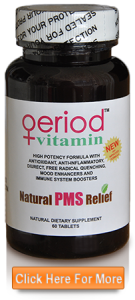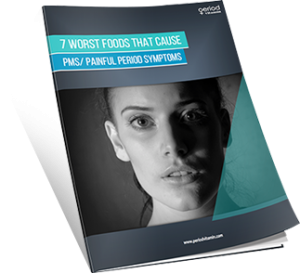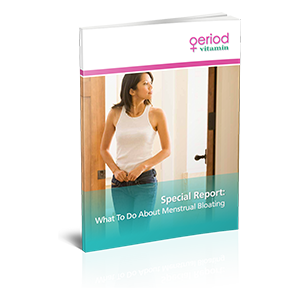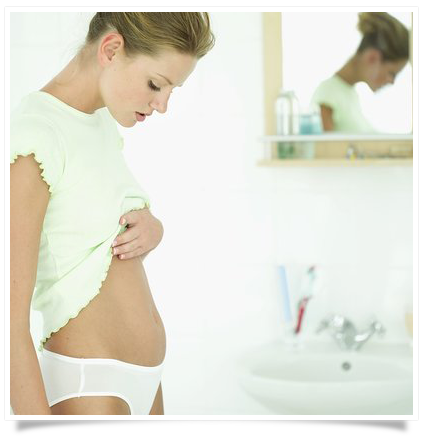 As you near the time for your period to start, you dread that period bloating and all the complications that come from it.
As you near the time for your period to start, you dread that period bloating and all the complications that come from it.
- Why do women experience bloating before, during and after their menstrual cycle?
- What causes it and how can it be prevented?
- If bloating cannot be prevented can it be treated or remedied?
- Is there a point in the menstrual cycle that a woman might have bloating without a period?
Eight out of ten women on average suffer from bloat both before and at the beginning of their period.
Causes of Menstrual and PMS Bloating:
Bloating during a woman’s menstrual cycle is a fairly common occurrence, but why and when does it happen? When does bloating go away after period?
There are multiple stages in a woman’s cycle and they are:
- Pre Menstrual Disorder last for 2-3 weeks and can have some bloating involved.
- Stage 1 – Follicular – estrogen levels skyrocket as the uterine lining thickens and bloating is stronger as ovulation occurs in the stage.
- Stage 2 – Luteal – there is not at much in this stage as progesterone is produced in higher quantities
- Period Bleeding – shedding of the excess fluid along with blood and tissue as the bloat is relieved in this stage
- Post Menstrual
- Menopausal Bloating – bloat can return due to hormonal fluctuations
Bloating normally occurs in the pre menstrual or pms stage, follicular and period stages. What is called period bloating is actually fluid retention and results in a feeling of being overly full or being swollen around the waist area. It is quite often very uncomfortable, annoying and bothersome.
It is not the same as menstrual cramping nor is it responsible for other menstrual symptoms such as mood swings, fatigue, back pain, or headaches. Bloating is not a serious condition but rather a very irritating one that every woman wants to stop having. Bloating most often occurs during the pre-menstrual stage as a symptom of Pre Menstrual Syndrome.
During the menstrual cycle there is a major fluctuation of hormones, namely estrogen and progesterone, and this causes fluid retention, swelling and the uncomfortable feeling of bloating. Women actually gain pounds of water during this time due to the ability of estrogen to cause fluid to be retained.
Usually by the third day of the period the excess water, blood and waste have been flushed from the system and the woman no longer experiences bloat. For those short 2 to 3 days however, life can be pretty miserable for women dealing with this water retention and bloat. When estrogen levels rise, bloating increases and when estrogen levels fall, it also falls.
There are other issues besides bloating that women experience in this timeframe. When estrogen levels rise to cause bloating it is often accompanied by a lack of appetite, irregularity in the bowl movements resulting in either constipation or diarrhea or both. In fact this irregularity in the movement of solid wastes through the digestive system can actually cause or add to the sensation of bloat. When the estrogen levels rise enough to cause bloating they can also cause a blockage in the bile flowing to the gallbladder and causing all kinds of digestive issues.
Preventing Bloating and Weight Gain:
So can this bloat be prevented along with the fluid retention and weight gain that at least 40% of all women suffer monthly? The best ways to attempt to prevent extreme bloating is to limit the outside factors that can add to it. You cannot prevent the increases in hormones but you can eliminate factors that will increase the fluid retention and therefore the bloat.
Some things to consider are:
- Reduce your dietary intake of salt which in itself leads to fluid retention.
- Reduce your dietary intake of sugar, alcohol and caffeine around the middle of your cycle because these items can also be responsible for some additional bloating.
- Drink at least 8-10 eight oz. glasses of water which will lead to reduced bloating. We realize this is counter intuitive but the more water you consume the less bloating you will have.
- Exercise will increase blood circulation if done on a regular basis and will help prevent bloating.
- Avoid rich, fatty and gassy foods. These foods are hard for the body to digest and therefore will add to the sluggishness of the digestive system and add to bloating. Avoid red meat and don’t overeat and avoid any unneeded fats such as adding oils when cooking. No fried foods, chips or nuts. Avoid the gassy foods that are mostly in the vegetable family such as broccoli, beans, cabbage, lentils, cauliflower, milk, corn, potatoes, peas, artichokes and wheat bran in order to prevent period bloating and menopausal bloating.
- Eat green leafy vegetables such as kale, collard greens, spinach, avocado and beet root to prevent bloat.
- Fresh fruits and dried fruits are good choices to prevent bloating. Fruits such as bananas and tomatoes and any dried fruits and nuts.
Natural and Herbal Remedies and Alternative Medicine
Supplements: There are several vitamins and minerals that will help with bloat including 500 ml magnesium daily, 440 ml of zinc daily, 25 mlg Vitamin B6 daily, Vitamin E, Vitamin A and 800 mlg Calcium daily are all known to help get rid of bloating.
Fruits: The fruits that will help to alleviate bloat include watermelon, oranges, lemons and grapes.
Diuretics: A very common way to get rid of bloat is through the use of diuretics. Diuretics increase the water and salt that is cleansed through urine and this reduces the bloat. Aloe vera pills will also act as a diuretic and help to pass water through the system efficiently.
Herbs and bitters: These aid in digestion and anything that moves waste faster through the system will help to relieve bloating. These herbs include peppermint, chamomile, ginger, lemon balm and fennel. These herbs also have diuretic properties to alleviate bloat. Dandelion the herb is also a good diuretic to use.
Primrose Oil: Primrose oil will block the impact of the increase in prostaglandins that can add to bloat. This comes in tablet form and can be purchased at any health store. Take eight tablets daily.
Heating Pad: Use a heating pad to remedy both bloat and with cramping.
Relax: Try relaxation techniques, yoga and breathing exercises to attempt to calm down the fluctuating hormones and thereby reduce bloat.
Apple Cider Vinegar: Use up to 4 tablespoons of apple cider vinegar every day for bloat. There is acetic acid in the apple cider vinegar and it will balance out the hydrochloric acid that your stomach makes. Also if you do not have enough hydrochloric acid to digest your food, you can also get bloat. Apple cider vinegar will help with that as well as it assists food in being digested easily and quickly. Your best choice with apple cider vinegar is to use an organic type.
Eat a Little: Eating smaller meals more often will help to alleviate bloat. Give up those three large meals a day at a time when it is more difficult for your system to digest food to begin with and you will help yourself a lot toward eliminating bloating.
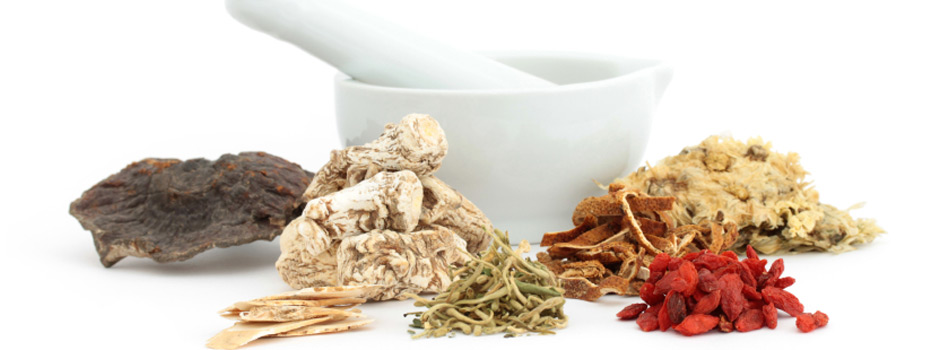
Menopausal Bloating:
In addition to bloating, women also have to concern themselves with menopausal bloating. Menopausal bloating occurs when the production of estrogen slows down. This is also why women typically complain of weight gain with menopause. There are some things you can do about both bloat and weight. As your estrogen is lowered you can gain weight pretty fast. Whether the bloating and presence of gas is during perimenopause or actual menopause the effect is the same.
Women have the same bloating sensations they had with menstruation. They feel heavy, irritable, full, and bloated. As the body loses estrogen in menopause, it becomes harder and harder to burn fat and lose weight. Most fat that is consumed during menopause ends up stored in the body as fat rather than burned as energy. Menopausal bloating can make a middle aged woman – between 45 and 55 – miserable all the time and affect all the other systems in her body.
It can lead to in the stomach and abdominal pain, gas, burping, headaches, in the thigh pain and heaviness. All of this can eventually lead to obstruction within the digestive system of a woman with peri-menopausal or menopausal bloat. The woman in this situation needs to be careful and make sure that more serious health issues and digestive system issues do not pop up due to menopausal bloat.
So you can see from this that bloat, peri-menopausal bloat and menopausal bloat are extremely uncomfortable and irritating for the woman who is experiencing them. For the most part bloating is not a life endangering condition; however it can lead to more serious issues within the digestive system. Since the cause of bloat is fluctuating hormonal levels it cannot be entirely eliminated and there is no cure. It can however be mitigated both through prevention and after the fact remedies. A woman should not have to suffer endlessly with period bloat or menopausal bloat.


